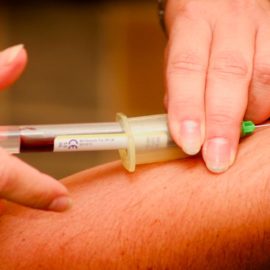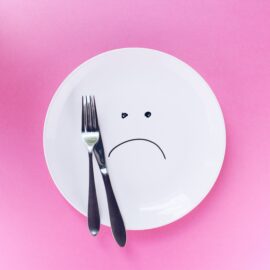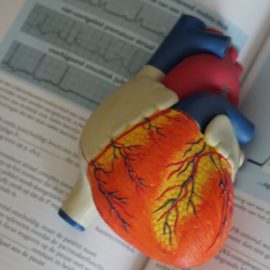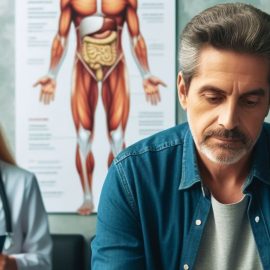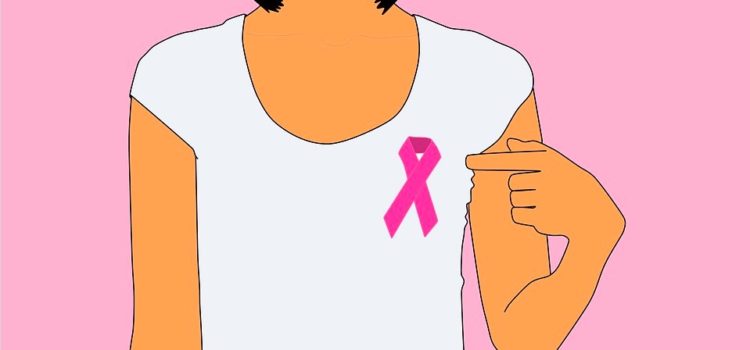
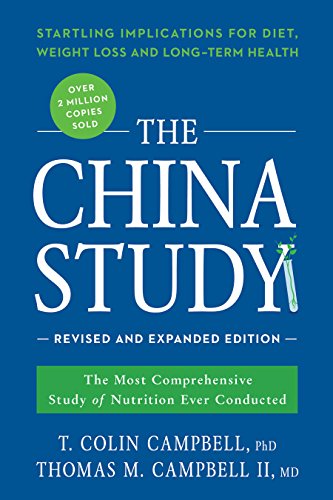
This article is an excerpt from the Shortform summary of "The China Study" by Colin Campbell. Shortform has the world's best summaries of books you should be reading.
Like this article? Sign up for a free trial here .
One out of eight American women will get breast cancer in her lifetime. Like most cancers, this is yet another disease of affluence, a disease that strikes people in economically advantaged areas. Why? Does this mean that breast cancer is preventable?
We’ll cover the factors that pose the most risk and look at how to prevent breast cancer through a variety of treatment options. Learn why the simplest and healthiest way to lower your risk may be to adopt a plant-based diet.
How to Prevent Breast Cancer: Problems and Solutions
The Problem: High Blood Cholesterol
Lower Cholesterol to Prevent Breast Cancer: You can lower your blood cholesterol by cutting down on cholesterol in food, fat, and animal proteins. Both dietary fat (found in greater quantities in animal foods than in plant foods) and animal proteins have been shown to increase cholesterol. Adopting a plant-based diet is the best way to lower your cholesterol, and therefore an effective strategy to consider when figuring out how to prevent breast cancer.
The Problem: Prolonged Exposure to Female Hormones
Decrease Your Exposure to Certain Hormones to Prevent Breast Cancer: These hormones include estrogen and progesterone. The earlier a female starts menstruating, and the later she starts the process of menopause, the greater her exposure to estrogen over her lifetime.
Animal foods seem to play a part in increasing cancer risk at every stage of a woman’s life:
- Adolescence: In girls, there’s an association between eating high-fat diets and starting menstruation earlier. Because animal foods are often high in fat, they may contribute to early menstruation.
- Adulthood: High-fat diets have also been shown to increase estrogen levels during reproductive years.
- Menopause: Diets rich in animal foods are associated with delays in menopause of three to four years. These additional years of estrogen exposure increase breast cancer risk.
In the China Study, researchers compared the estrogen levels of Chinese women to the levels of British women, whose breast cancer risk is similar to that of American women.
Chinese women in the study didn’t start menstruating until an average age of 17. Due to their low-fat diets, they also started menopause earlier than British women. Also due to their low-fat diets, Chinese women had half the estrogen levels of British women during their reproductive years.
Because the reproductive lives of Chinese women were 75% shorter than those of British women, and because their estrogen levels were lower throughout life, they had 35-40% less exposure to estrogen over their lifetimes. This dovetails with the fact that Chinese women get breast cancer at one-fifth the rate of Western women.
In summary, eating a whole foods, plant-based (WFPB) diet means you naturally consume less fat. This diet raises the age of a girl’s first period, lowers the age of menopause, decreases female hormone levels, and decreases blood cholesterol. In these ways, the WFPB diet prevents breast cancer, or lowers your risk, in at least four different ways.
The Problem: Hormone Replacement Therapy
Avoid HRT to Prevent Breast Cancer: Many women take HRT during menopause to protect their bones, prevent heart disease, and decrease menopause symptoms.
However, HRT has been shown to increase your breast cancer risk by 26-30%. Further, while HRT does seem to help protect against bone fractures and colorectal cancer in later life, some studies suggest it increases your risk for cardiovascular disease.
There may be a healthier alternative to HRT—eating plants.
Eating a plant-based diet can help smooth the transition into menopause. When women go through menopause, their reproductive hormones decline to a base level. The steepness of this decline may dictate how severe your menopause symptoms are.
Because plant-eaters have lower levels of these hormones throughout their reproductive years, the drop to base level is less dramatic than for meat-eaters. Therefore, plant-eaters experience fewer menopause symptoms.
Again, when considering how to prevent breast cancer, eating more plant foods should be high on your list of strategies.
The Problem: Genes
Your genes also increase your risk of getting breast cancer, but probably not as much as the media tells us. Although the “breast cancer genes,” BRCA-1 and BRCA-2, have received a lot of attention, studies find that less than 3% of breast cancer cases are genetic. Additionally, only 0.2% of the population carries these genes, so only a small percentage of breast cancer cases can be attributed to them.
The fact that half of the women who carry BRCA-1 or BRCA-2 never get breast cancer also demonstrates that your genes are not your destiny.
It’s not that the discovery of these genes wasn’t important. But we need to pay attention to not only who carries these genes but also what causes them to be expressed. A diet high in animal fats and proteins has been shown to act as a trigger for both carcinogens and cancer-causing genes.
Your genes seem to be the one risk factor that can’t be helped, but studies are showing that that’s not the case. Once again, what you eat is an important element of how to prevent breast cancer.
The Problem: Environmental Chemicals
Environmental chemicals pose another risk. There are different types of carcinogenic chemicals:
Carcinogen Type #1: We can’t metabolize these carcinogens, so they stay in our bodies, accumulating in body fat and the breast milk of lactating mothers. These carcinogens include dioxins and PCBs. 90-95% of exposure to these chemicals comes from eating animal foods.
Carcinogen Type #2: We can metabolize these carcinogens, but the process of metabolism creates dangerous byproducts that alter our DNA. These carcinogens, PAHs, come from car exhaust, tobacco smoke, smokestacks, and some petroleum products.
Animal foods can accelerate the rate at which PAHs bind to DNA and cause cancer. Nutrition can also alter the toxicity of certain carcinogens.
While these carcinogens are dangerous, their role in causing cancer is less important than what we choose to eat and how these foods activate or suppress the carcinogens.
Conventional Versus Lifestyle-Based Breast Cancer Prevention
If you’re wondering how to prevent breast cancer, consider both conventional and lifestyle-based strategies.
If you have a family history of breast cancer or test positive for one of the BRCA genes, you have a few options. Three are conventional and one is lifestyle-based.
Option #1: Do nothing. Having a genetic predisposition for a disease doesn’t mean you’ll get it.
Option #2: Tamoxifen
- Pro: This drug has been shown to decrease cancer risk by 49%, which is huge.
- Cons: Other studies have failed to replicate these results. The drug may only work for women who have extremely high estrogen levels. Additionally, tamoxifen is dangerous. It raises the user’s risk of stroke, deep vein thrombosis, pulmonary embolism, and uterine cancer.
Option #3: Mastectomy
Some women choose to have a preventative mastectomy to remove breast tissue and therefore dramatically reduce their risk of the disease.
But again, family history and a BRCA gene don’t guarantee that you’ll get breast cancer. There may be an option that is less drastic and just as effective.
Option #4: Lifestyle Choices
Proven ways to reduce breast cancer risk include eating a low-fat diet free of animal products and refined carbs, cutting out alcohol, and exercising.
These choices prevent estrogen levels from getting too high, rather than treating them once they’re already high.
Paired with regular screenings, this fourth option can be just as effective, and safer, than the other options, even for women who’ve already had a mastectomy.
Understanding how to prevent breast cancer with a variety of strategies will help you develop a plan for decreasing your own risk and the risk of your family members.
———End of Preview———

Like what you just read? Read the rest of the world's best summary of "The China Study" at Shortform . Learn the book's critical concepts in 20 minutes or less .
Here's what you'll find in our full The China Study summary :
- Why animal proteins (meat, milk) might cause cancer, diabetes, and other diseases
- Why the medical institution is structured to hide the truth about disease and food
- The precise diet you'll need to eat to live longer and feel happier

